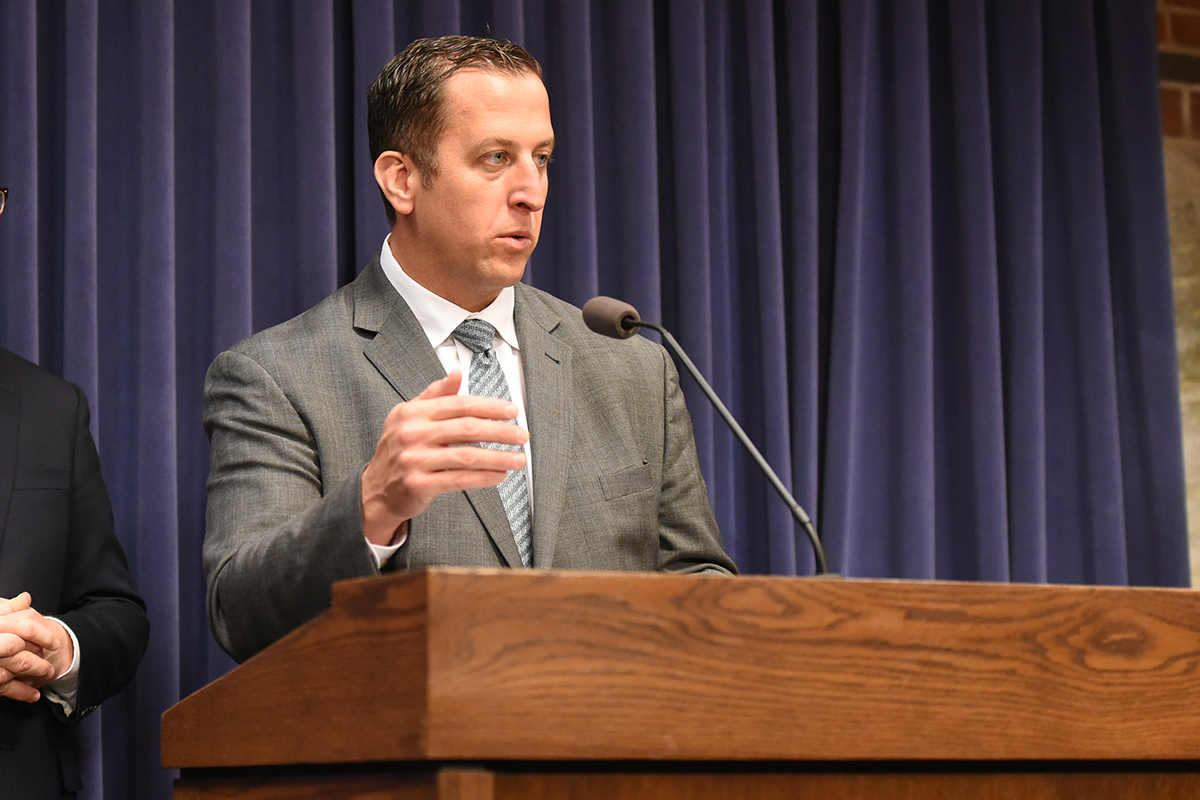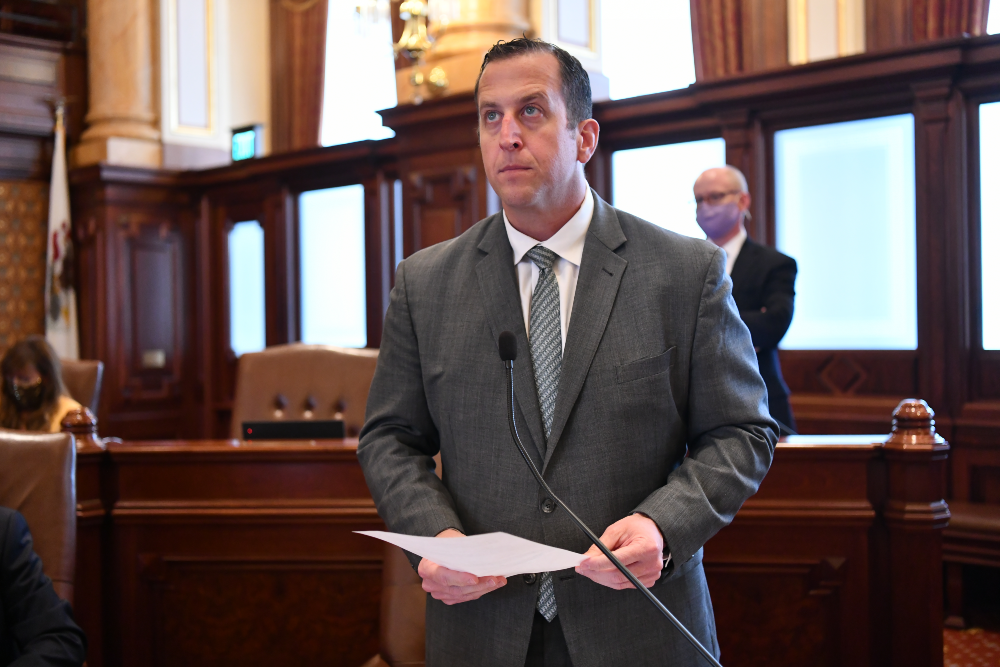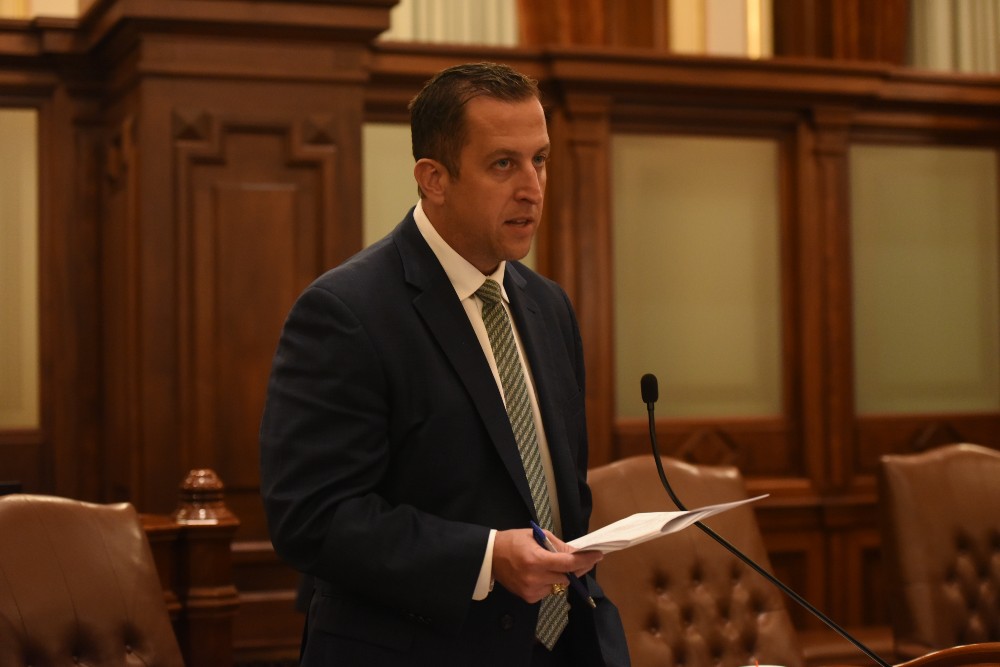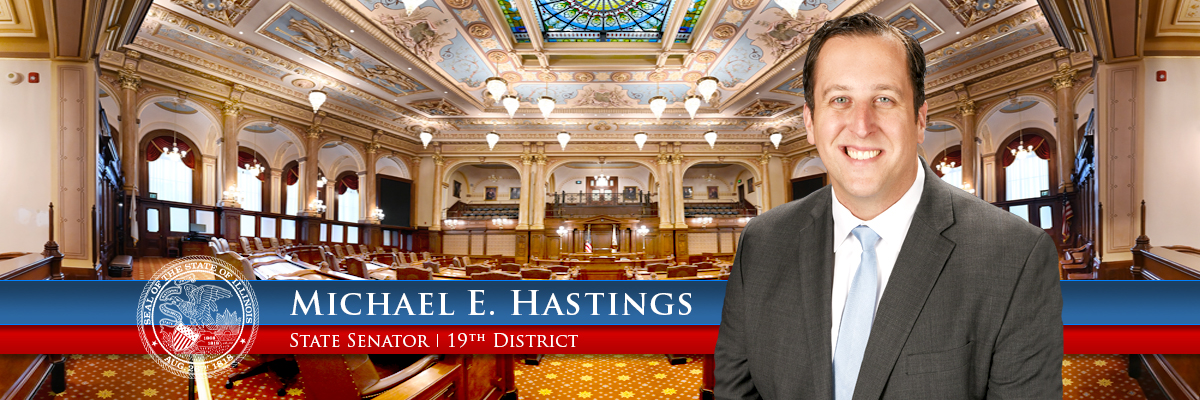Hastings pleased to see ICC start making progress to implement Climate and Equitable Jobs Act
- Details
- Category: Press Releases

SPRINGFIELD – The Illinois Commerce Commission is working swiftly to implement the Climate and Equitable Jobs Act to make Illinois a leader in fighting climate change, thanks to the work of Frankfort Democrat, State Senator Michael E. Hastings.
Hastings, who serves as chair of the Senate Energy and Public Utilities Committee, led legislative negotiations for the Senate Democratic Caucus. He is thrilled to see the ICC begin the process of applying vital provisions.
“This historic, bipartisan agreement will provide Illinois residents with reliable, renewable and responsible energy,” Hastings said. “I am pleased to see the ICC working diligently to carry out the immediate requirements of the new law.”
Hastings applauds clean energy agreement
- Details
- Category: Press Releases

SPRINGFIELD – Legislation that would make Illinois a national leader in reducing carbon emissions, fight climate change, and preserve jobs passed the Senate Monday.
State Senator Michael E. Hastings (D-Frankfort), who serves as chair of the Senate Energy and Public Utilities Committee, led legislative negotiations for the Senate Democratic Caucus.
“Today’s historic agreement is the culmination of a difficult, but worthwhile negotiation process where we refused to accept anything less than the best for Illinois’ clean energy future,” Hastings said. “Our work product is one that is renewable, reliable, and affordable for all Illinoisans.”
Under Senate Bill 2408, the largest investment in renewable energy in state history, Illinois will embark on an aggressive path to complete clean energy generation by 2050.
Additionally, this plan preserves nearly 28,000 direct and indirect jobs and $149 million in local economic impact.
“Job preservation and economic viability for often forgotten communities remained a focal point for me throughout this process,” Hastings said. “Not only were we able to preserve these jobs, but we also created the opportunity to train for thousands of new, good-paying jobs in the clean energy sector.”
Senate Bill 2408 now awaits the governor’s signature.
Hastings announces funding for Tinley Park Public Library
- Details
- Category: Press Releases
 FRANKFORT – Patrons of the Tinley Park Public Library will soon see upgrades to its services thanks to a $83,636 grant, State Senator Michael E. Hastings announced Friday.
FRANKFORT – Patrons of the Tinley Park Public Library will soon see upgrades to its services thanks to a $83,636 grant, State Senator Michael E. Hastings announced Friday.
“The Tinley Park Public Library has served as a learning hub for generations of residents in the South Suburbs and deserves additional investment to uphold that tradition,” Hastings said. “This funding will give the library the ability to keep pace with other local libraries in an ever changing technological landscape.”
The $83,636 received by the Tinley Park Public Library is part of $18.1 million in grants awarded to 638 public libraries across the state. For more than 40 years, the Illinois Public Library Per Capita and Equalization Aid Grants Program has helped public libraries with a low library tax base to ensure a minimum level of funding for library services.
Libraries will use the grants from the secretary of state’s office to help fund new services and products, such as audiobooks, adult programming, dual language materials and more.
For more information on the grants, people can visit the secretary of state’s website.
Hastings preserves jobs and millions in economic impact through landmark clean energy legislation
- Details
- Category: Uncategorised

SPRINGFIELD - Following the Senate’s passage of a landmark piece of legislation that will cement Illinois’ status as a leader in the clean energy sector and save thousands of jobs, State Senator Michael E. Hastings (D-Frankfort) released the following statement:
“After years of difficult negotiations, a broad coalition of stakeholders came to a bipartisan agreement that will define the future of clean energy in Illinois. The Illinois Senate, and the Senate Energy and Public Utilities Committee, refuse to allow ratepayers to foot the bill for a transition to a cleaner energy future that did not include our valued nuclear fleet. We traveled the state, conducted thorough hearings and made clear in negotiations that good-paying jobs and our environment must be preserved at all costs. This starts with our nuclear fleet, the most precious natural resource the state of Illinois can offer.
“We came together to win a must win battle to not only save jobs and generate clean energy, but to create new ethical standards for utility companies. The result of this agreement is the preservation of 28,000 direct and indirect jobs and $149 million in local economic impact, maintaining our dominance in the energy generation market space, and allowing us to reach our renewable goals. Greed has run rampant in Illinois for far too long, forcing many to pay the price for the actions of a greedy few. Under this legislation, those who cast a dark cloud over our state’s government will be held to the highest ethical standards.”
More Articles …
Page 37 of 58



